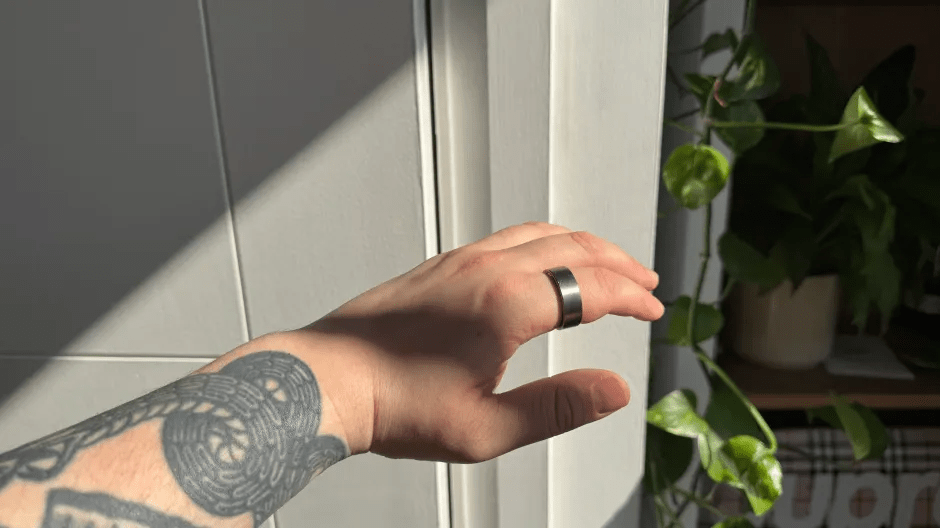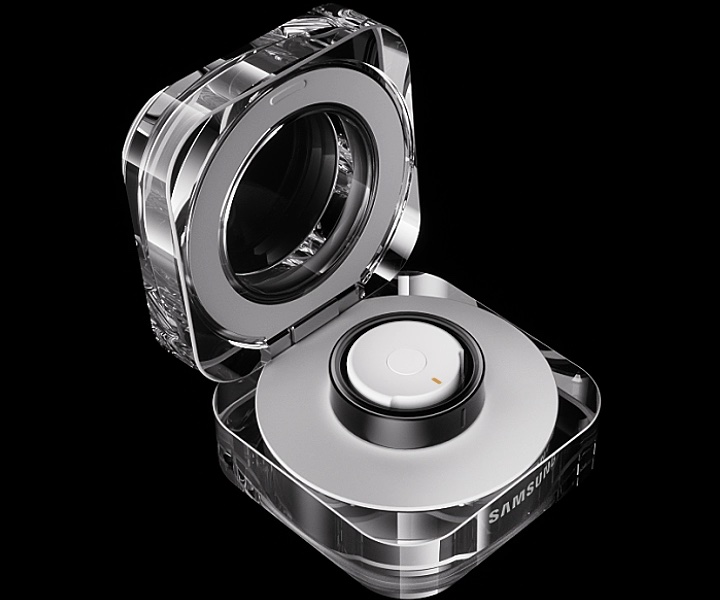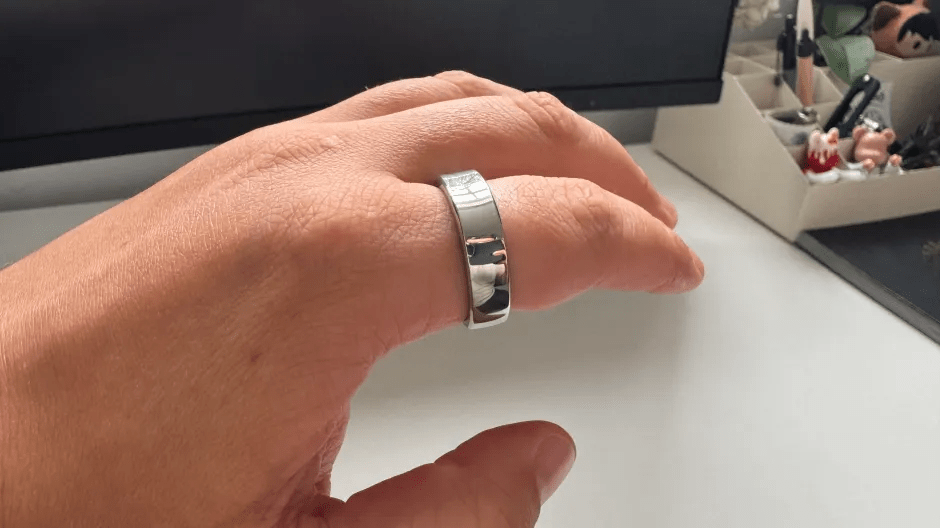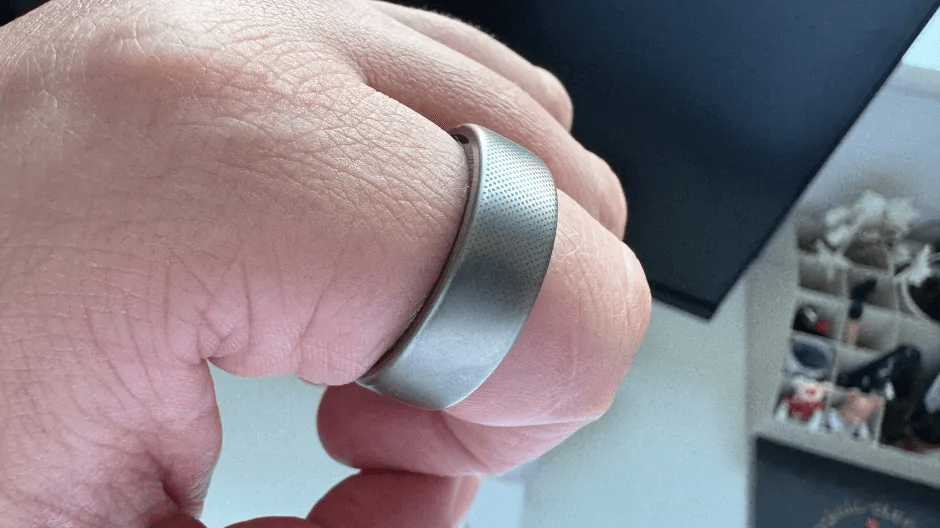Make no mistake, the Oura Ring has cemented itself as the go-to smart ring for health enthusiasts, admired for its sleek design and cutting-edge features.
However, that subscription fee and the initial cost have left many people searching for more affordable alternatives.

Ultrahuman Ring Air, £279
Fortunately, the market is now brimming with options that offer either unique functions or affordable pricing.
From tracking sleep patterns to monitoring heart rates, these alternatives are stepping up their game.
To give you a helping hand in selecting your Oura alternative, we’ve tested a selection of the best alternative smart rings on the market, so be sure to read on for more.
Best Oura ring alternatives at a glance
- Samsung Galaxy Ring, RRP £399 – buy here
- Ultrahuman Ring Air, RRP £279 – buy here
- Ringconn Gen 2 Smartring, RRP £329 – buy here
- Amazfit Helio Ring, RRP £150- buy here
How we tested Oura ring alternatives
To thoroughly test a range of smart rings, we gathered several models, including some of Oura’s most noteworthy competitors.
Over two weeks, we dedicated ourselves to analysing each device’s performance, wearing them daily to evaluate their features and capabilities.
From design and build quality to overall comfort, we scrutinised every detail of these rings, assessing how well they held up during day-to-day activities, intense workouts, and even overnight, while tracking sleep.
Each ring was put through its paces, focusing on accuracy, ease of use, and compatibility with apps or devices.
At the end of the testing period, we assigned each smart ring a score out of five based on key factors such as functionality, durability, and value for money, helping to determine which of these devices truly stands out and whether they justify their price tags.
Best Oura alternative smart rings of 2025
Samsung Galaxy Ring

Samsung Galaxy Ring, £399
Pros:
- Looks and feels high quality, with three colours available
- Samsung Health App is straightforward to use
- Offers health advice tailored for you based on tracked data
- Good battery life
Cons:
- Sometimes takes a while for the app to sync with the ring
- Could use more activity logging options
Rating: 4.5/5
My review of the Galaxy Ring was done with limited prior experience with smart rings, but I was won over by Samsung’s entry into the market for these trackers.
To get the basics out of the way, this ring is compatible with all Android smartphones but not iPhones, and you will need to download the Samsung Health app to access the tracking data the Galaxy Ring records.
Once I was all set up, I found the app easy to use, and it offers detailed insights on your sleep, exercise and diet based on both what the ring records and information you input manually.
The sleep data recorded is helpful as it allows you to see when you enter the different phases of sleep, from light to REM to deep sleep, and nighttime wakeups.
This could help you make changes to your routine and improve the “sleep score” that is shared each morning, based on what the ring records.
Another feature I really liked was that the app automatically logs longer periods of walking as an exercise session, which makes you more aware of fitness wins in your day-to-day life.
My one slight bugbear is that the app doesn’t have as many activity tracking options as equivalent fitness watches.
But for most people who simply want to log their exercise habits, it is accurate and easy to use.
The ring also has a pretty good battery life, and I found it only needed to be charged once a week based on average power usage.
Overall, this is a great-looking device with the functionality to back it up.
Review by Jamie Lewis
Ultrahuman Ring Air

Ultrahuman Ring Air, £279
Pros:
- Extremely lightweight
- Great free app interface
- Incredible insights into sleep, recovery, activity and more
- Nice aesthetics
- Many sizes and a handful of colours available
Cons:
- Scratches very easily
- Battery life isn’t great unless on chill mode
Rating: 4/5
Dubbed “the world’s most comfortable sleep tracker,” the Ultrahuman Ring AIR caught my attention with its impressive features.
From tracking sleep, HRV, temperature, and movement to offering actionable health suggestions, it promises to be much more than just a stylish accessory.
Before placing my order, I used the free sizing kit provided to find the perfect fit and chose the “Raw Titanium” colour to match my silver jewellery.
Weighing between 35g and 53g depending on size, the ring feels incredibly light and comfortable, settling naturally on my index finger.
Setting it up was quick and easy, and within hours of wearing it, the app started delivering insights into my movement, stress levels, and HRV.
As I continued using it over the next few days, I unlocked a host of detailed features, including sleep tracking, recovery metrics, circadian rhythm analysis, and sleep debt monitoring.
One of the standout app features was its ability to suggest actionable changes to improve my sleep, making the data genuinely useful.
That said, the Ultrahuman Ring AIR wasn’t without its flaws.
I noticed small scratches on the ring within 24 hours, which might annoy those who prefer their jewellery to remain pristine.
Battery life also fell short initially, draining faster than expected until I activated its “Chill Mode” feature, which significantly improved performance.
Despite these minor hiccups, the Ultrahuman Ring AIR has proven to be an impressive tool for tracking wellness, combining practicality, style, and a wealth of health insights in one sleek device.
Check out our full Ultrahuman Ring Air review here for more.
Ringconn Gen 2 Smartring

Ringconn Gen 2 Smartring, £329
Pros:
- Incredible battery life (12 days)
- No add-on fees or paywalls
- Charging case offers up to 150 days of extra charge
- Extremely lightweight, thin and comfortable
Cons:
- Looks cheap compared to some of the alternatives
- Limited colours
- Poor fitness tracking
- Stats are not as in-depth as similar-priced competitors
Rating: 4.1/5
Next up was the crowdfunded RingConn Gen 2.
If first impressions were everything, this ring wouldn’t have scored very highly.
It’s incredibly thin and lightweight, which is definitely a positive, but the reflective, cheap-looking finish left a lot to be desired.
That said, it’s a smart ring designed for functionality, not just looks, and thankfully, its features more than make up for the aesthetic misstep.
The standout feature that immediately caught my attention was the battery life.
With an estimated (and personally confirmed) 12 days on a single charge and a portable case providing an additional 150 days of power, it’s miles ahead of its competitors in this department.
The app is straightforward and divided into four main sections: Sleep, Relax Status, Activity, and Vitals.
It gives you data on everything from heart rate and skin temperature to steps and stress levels, along with helpful suggestions.
The insights aren’t as detailed or advanced as those offered by the Ultrahuman, but unless you’re deeply into biohacking, it’s unlikely you’ll miss the extra detail.
RingConn also includes AI coaching, which lets you create personalised health plans with goals and rewards.
Even though I’m not usually one for gamified features, I found this a handy way to see all my data in one place.
Unfortunately, the fitness tracking is where the RingConn Gen 2 falls short.
There are only five exercise modes, none of which can auto-detect activity, and during a vigorous indoor cycling session, the heart rate sensor failed to record my pulse accurately.
Still, while the fitness tracking is underwhelming and the design might not appeal to everyone, the RingConn Gen 2 delivers a solid overall experience.
If you can look past these minor flaws, it’s a smart ring worth considering.
Check out our full RingConn Gen 2 Smartring review here.
Amazfit Helio Ring

Amazfit Helio Ring, £150
Pros:
- Affordable
- Looks and feels premium
- Simple app interface
Cons:
- Limited sizes
- One choice of colour
- Colour not the same as the photos
- Poor choices of workout modes
Rating: 3.8/5
The Amazfit Helio Ring is arguably the most budget-friendly option in the smart ring market, priced at just £150.
The ring itself looks and feels premium, with a sleek silver finish that oddly differs slightly from the bronzed tones shown in its marketing images.
At just four grams, it’s lightweight and comfortable to wear, though sizing could be better.
With only three sizes available, I had to settle for a size 12 instead of my usual size 11, which initially felt a bit loose.
Setting up was quick and hassle-free, with the Zapp app providing a simple yet intuitive interface.
The app focuses on three main pillars: readiness, sleep, and exertion.
While the insights aren’t as detailed as those offered by pricier competitors, they’re easy to understand, making them ideal for beginners.
The sleep tracking stood out, offering daily insights that matched how I felt physically.
However, the workout mode is a real letdown.
With only four options: running, walking, cycling, and treadmill, it feels extremely limited, especially for indoor workouts.
GPS tracking works well for outdoor activities, but I couldn’t properly record my Zwift bike sessions or weightlifting, leaving gaps in the data.
Battery life is decent, averaging about four days per charge (not groundbreaking, but acceptable for the price).
Despite its flaws, the Helio Ring is an appealing choice for those seeking an affordable entry into wearable tech.
Its sleek design, accessible data, and reliable health tracking make it a worthwhile option for first-time users.
Check out our full Amazfit Helio Ring review for more.
Smart Ring FAQs
Is the Oura Ring worth it?
Based on reviews and feedback, the Oura Ring appears to be a worthwhile investment according to the majority of its users.
Users say that it is lightweight, hassle-free, and easy to wear, while also offering excellent sleep and general health tracking.
In terms of downsides, many note that the workout and activity tracking could be significantly improved, and the subscription fee could also be more reasonable.
The fee itself is £5.99 per calendar month, just to access the basic features of the app, meaning it is essentially not a one-off payment product.
The latest Oura Ring 4 has been recently released and costs from £349.
What do smart rings do?
Smart rings are wearable devices that are very similar to smartwatches, just in a compact ring form.
Just like their watch counterparts, smart rings typically track general health stats and habits, exercise and sleep.
Here are some examples of the features you can expect to find when using a smart ring:
- Health and Fitness Tracking: Smart rings can monitor heart rate, sleep patterns, activity levels and even stress.
- Sleep Analysis: Many smart rings will have sleep analysis as a key feature, offering deep insights into sleep stages, duration and overall quality.
- Activity tracking: Steps, calories burned, workout durations, Vo2 max and occasionally heart rate zones are features often included.
- Recovery: Many smart rings will offer a daily recovery score, made up from your resting heart rate, skin temperature, HRV and stress rhythm.
Which finger do you wear a smart ring on?
Contrary to popular belief, smart rings can be worn on any finger.
However, for the sake of data accuracy, it is best to wear them on your index, middle, or ring finger due to the larger blood vessels.
Personally, I always choose to wear my smart rings on my index finger because I find it the most comfortable.
Before deciding which finger to wear your smart ring on, it is advisable to use a ring size tester for at least 24 hours to determine how your finger feels when it expands under different temperatures.
Most brands offer a free ring sizing kit, or they may provide a small discount on your actual ring purchase if you decide to buy one.
How much do smart rings cost?
Despite being a newer product on the market, you can actually find smart ring devices on Amazon for as little as £15.
Without trying it, I can’t personally attest to the accuracy of these devices; however, I can’t imagine they’re of excellent quality at that price.
On the other end of the scale, Ultrahuman has recently launched the Ultrahuman Rare – the “world’s first luxury smart ring.”
While this ring has all the regular features you would find in the Ultrahuman Ring Air, these models now come in Desert Rose, Dune, and Desert Snow.
The first two use 18K gold to make up the exterior and cost £1,499, while Rare Desert Snow uses PT950 Platinum (or 95% platinum) and jumps to £1,799.
For more sports, health and fitness content and buying guides, check out our dedicated talkSPORT shopping hub.